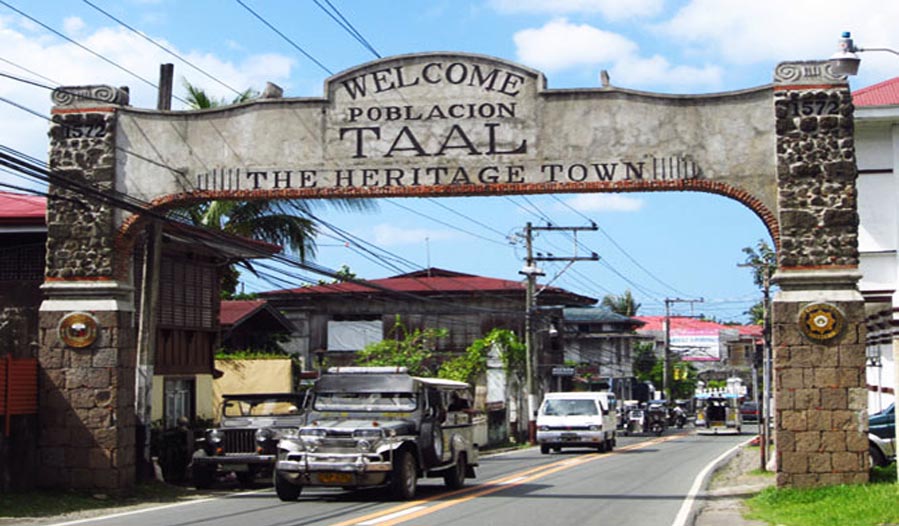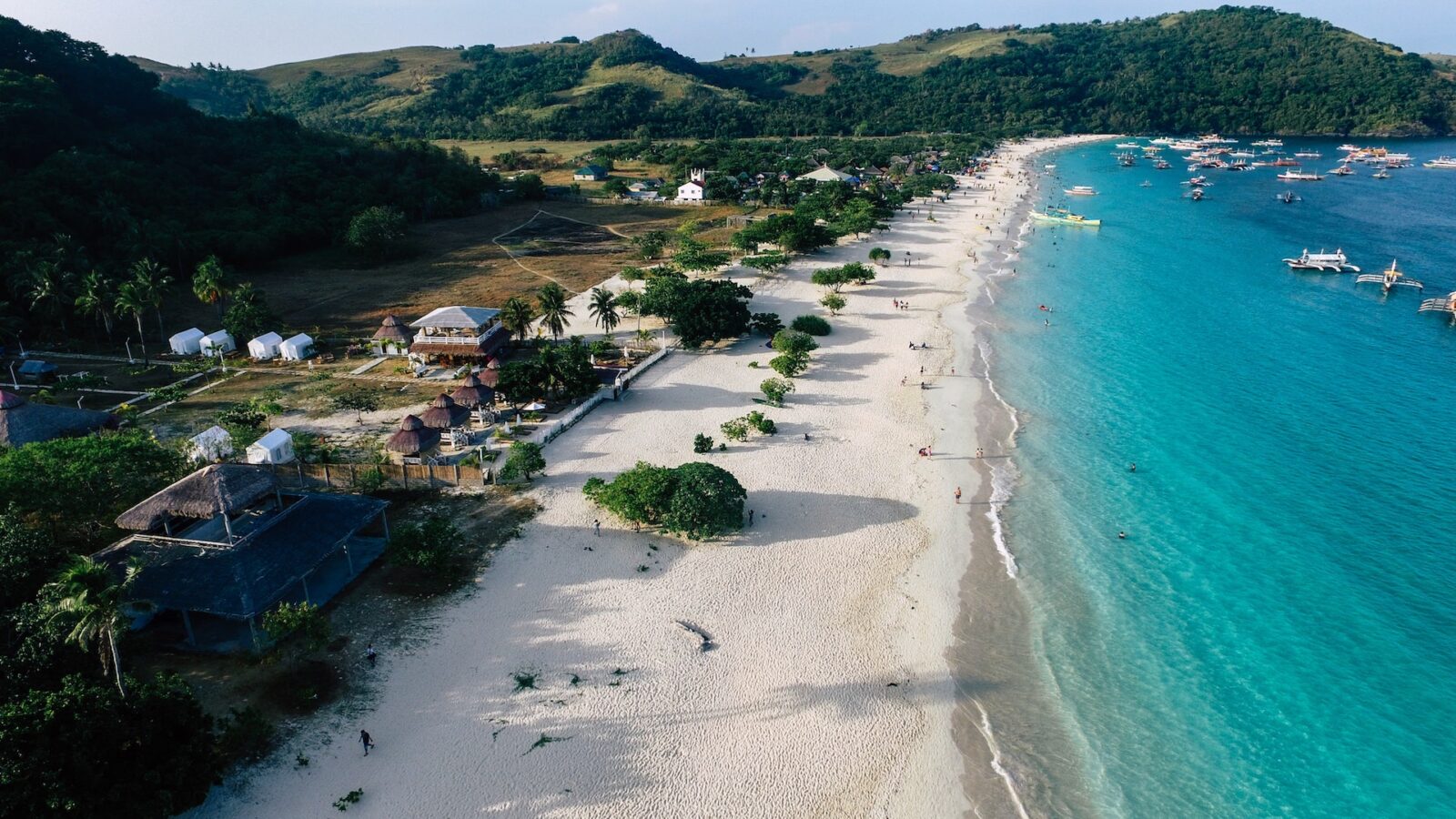Forget about Boracay. The Philippines offers a lot more beautiful destinations, off-the-beaten-track places, away from the usual tourist spots – from old Spanish towns, white beaches, rugged landscapes, waterfalls, and wildlife sanctuaries.
Beautiful white sand beaches, the rice terraces and colorful festivals are popular images of the Philippines. But with 7,107 islands to choose from, it definitely has a lot of off the beaten track destinations for the adventure-seeking visitor. They can be day-trips from Manila or a stay with an indigenous community in a picturesque natural landscape far from all the urban chaos.
Here are a few suggestions to whet your appetite for travel:

TAAL OLD TOWN
While Vigan is the poster boy for colonial towns, just three hours from Manila is the old town of Taal, Batangas. Don’t confuse it for Taal Volcano and Tagaytay City which is a good 45 kilometers away.
Old houses built during the Spanish colonial period line the main street leading to the 19th century Taal Basilica, which still is the largest Roman Catholic church in Asia. Walking through the town is a lesson in history and a window to colonial Philippines. Several of the ancestral homes are open to the public, many of them owned by heroes of the Philippine Revolution.
Make sure to visit the two Villavicencio houses which are the best-maintained in town. Some houses have been converted into bed and breakfast facilities, giving visitors an opportunity to experience living in an ancestral house, even just for a night.
Right beside the old municipal hall is the town market where one can buy good quality embroidered piña cloth, made from pineapple fiber, used to make the national dresses such as the barong, baro’t saya and terno.
The town is also known for its butterfly knives called balisong, and its delicious pork sausages or longganisa.
A walk down the centuries-old San Lorenzo Ruiz Steps, named after the first Filipino saint, will lead you to another old church known as the Caysasay Shrine, home to a 17th century image of Mary. While not as popular as the Laguna Loop or Viaje del Sol, the town is fast becoming a viable day-trip option from Manila as more restaurants and activities open this year.

BATANES
So much has been said and so much has been written about Batanes. But only a few actually get to visit. The best way to take in all the superlatives is really just to be there.
Batanes is actually closer to Taiwan than it is to Manila. Flights are not cheap. And seats are limited. The rugged beauty of these islands will more than compensate for the costs.
Basco is the charming seaside capital and the jump-off point for the rest of Batan Island, with stunning blue ocean-meets-green mountain scenery. Visiting neighbouring Sabtang Island is the best way to get acquainted with the unique Ivatan way of life with its old villages, traditional stone houses, colonial churches and stunning ocean views.
The trip on a traditional boat called the falowa is not easy as the waters between Batan and Sabtang can get really rough. But you haven’t been to Batanes if you don’t set foot on Sabtang.
There is decent accommodation. However, the best address on the island is Fundacion Pacita, a picturesque bed and breakfast on top of a hill with gorgeous island views! It does not come cheap though but is worth every euro.

BANTAYAN ISLAND
If Boracay Island is too crowded for you, there are dozens of other options. Bantayan Island in Cebu is one of them, with beautiful white sand beaches and a fantastic food scene that would keep you asking for more.
Getting there from Cebu City will require you to take a three-hour bus ride to Hagnaya Port and an hour and a half ferry ride to the island. Once there, it’s all about the beach and the food. That’s just about everything you’ll need for your vacation.

CALAGUAS ISLANDS
Now if you’re looking for a beach and only a beach, the Calaguas Islands in Camarines Norte is the go-to for many locals. With pristine white sand beaches and almost no development, this is as pure a beach can get! You’ll have to pitch a tent or camp out under the stars if you want to spend a night or two in paradise.
If you don’t want to cook your own meals or bring a tent, there are many tour companies which can arrange this for you.
From Manila, it’s an overnight bus to Paracale, one of the three possible jump-off points for the Calaguas Islands. The boat ride from Paracale is usually an hour and thirty minutes. The waves can be a bit rough given that Calaguas is already in the Pacific Ocean.
Mahabang Buhangin Beach in Tinaga Island, the largest of the Calaguas Islands, is where most visitors spend the night. The view of the white sand beach and aquamarine blue water as we approached Mahabang Buhangin erased all the discomfort I had to deal with while on the boat. It was paradise!

AGUSAN MARSH
On the extreme for off the beaten track destination is the Agusan Marsh Wildlife Sanctuary. Visiting the Agusan Marsh is a beautiful experience. But it’s not for the faint-hearted given the difficulties in reaching this picturesque wetland.
The Manobos are the indigenous group of the Agusan Marsh. The community in Sitio Panlabuhan, Loreto, Agusan del Sur recently created a tourism program for their ancestral domain. At the moment, amenities at the Sitio Panlabuhan Floating Community are close to none, sleeping mats with mosquito nets in floating houses, no electricity and basic toilets. But it’s worth it, especially with the warm reception of the Manobos who live there.
To get there, take a flight to Butuan City. You can spend a night in the city before proceeding to the marsh, and another night upon your return. It’s best to leave the rest of your luggage at the hotel you will stay at in Butuan and bring waterproof overnight bags for the trip to Agusan Marsh. Dry bags are highly recommended for cameras and mobile phones.
The trip to Bunawan, the jump-off point for the Agusan Marsh, is between two to three hours for private vehicles. On a public bus however, it takes close to four hours with all the stops. It takes another three hours by river boat to get to the Agusan Marsh from Bunawan. So you have to be in Bunawan by lunch.
The whole experience is about communing with nature. Bring a book to read or explore the marsh with the Manobos on a traditional paddleboat. They prepare your meals which is mostly freshwater fish they catch from the marsh, served with rice and vegetables. Migratory and endemic birds are abundant during the cold months from late November to early February.
If you’re ready for an adventure, e-mail pangulimansibug@yahoo.com to contact the community.




